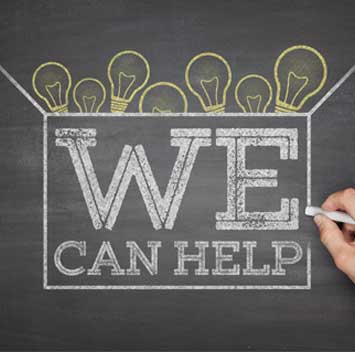Fuel Your Mind: The Connection Between Food and Mental Health
Posted by Collaborative Counseling

Have you ever noticed how your mood can change after eating certain foods? It’s no coincidence! The link between food and mental health is becoming increasingly recognized. Let’s dive into the connection between food and your mental health.
Nourishing Your Brain and Mental Health
Your brain is a complex organ that requires a steady supply of nutrients to function optimally. Just like your body needs fuel, your brain needs the right kind of nourishment to support cognitive function, mood regulation, and memory.
Key nutrients for brain health include:
- Omega-3 fatty acids: Found in fatty fish, flaxseeds, and walnuts, these fats play a crucial role in brain function and mood.
- B vitamins: Essential for energy production and mood regulation, B vitamins can be found in whole grains, leafy green vegetables, and lean meats.
- Vitamin D: Often called the “sunshine vitamin,” vitamin D supports mood and cognitive function. It can be found in fatty fish, fortified dairy products, and egg yolks.
The Gut-Brain Connection
Did you know your gut is often referred to as your “second brain”? It’s true! The gut-brain axis is a complex communication system that influences mood, behavior, and overall well-being.
- Probiotics: Beneficial bacteria found in yogurt, kefir, and fermented foods can support gut health and positively impact mood.
- Fiber: Found in fruits, vegetables, and whole grains, fiber promotes a healthy gut microbiome, which can contribute to better mental health.
The Impact of Diet on Mental Health
Eating a balanced diet rich in whole foods can have a profound impact on your mental health. Studies have shown that diets high in processed foods, sugary drinks, and unhealthy fats are linked to an increased risk of depression, anxiety, and other mental health conditions.
Tips for improving your diet for better mental health:
- Prioritize whole foods: Focus on fruits, vegetables, whole grains, lean proteins, and healthy fats.
- Limit processed foods: Reduce your intake of sugary drinks, fast food, and highly processed snacks.
- Stay hydrated: Drink plenty of water throughout the day.
- Mindful eating: Pay attention to your body’s hunger and fullness cues.
Remember, making gradual changes to your diet is key. It’s important to listen to your body and find what works best for you. If you’re struggling with your mental health, consider consulting with a healthcare professional or registered dietitian for personalized guidance.
For resources on healthy meal planning, check out EatingWell.com


 View Our Locations
View Our Locations Request Appointment
Request Appointment







